I am having issues trying to parse a set of data that contains a column with 1 or more values that are combined by ";". Here is a sample (remember I didnt set up this data configuration, I just have to deal with it):
Create Table #testData
(
team varchar(20),
sdate datetime,
unqKeys varchar(max)
)
Insert Into #testData values ('1','2/1/2017','abcd123;qazwsx123');
Insert Into #testData values ('1','2/1/2017','qweasd123');
Insert Into #testData values
('1','3/1/2017','qweasd123;564plmnko;poilkj765');
Insert Into #testData values ('2','2/1/2017','ug56ogth4;uhntg456f');
Insert Into #testData values ('2','4/1/2017','fghrty987');
Insert Into #testData values ('2','4/1/2017','ertdfg546;werstf234;qweasd123');
Select * From #testData
What I need to see is where [team] has a value that repeats in the [unqKeys] column. I have tried to use a COALESCE on the unqKeys but I am not able to group them all by team. I need a way to combine all the unqKeys for one team then step through the list checking for duplicates. Since this is SQL Server 2012, I do not have the split_string function but I did attempt to make one with success but I still was not getting them combined with the team id.
In the above example I need to see a positive find for:
team | dupKeys
---- -------
1 qweasd123
This is because the unqKey is present in more than one record for the distinct team.
I have tried to select the team and coalesce the unqKey but this fails with a group by because the combined, unqKey is not a part of the aggregate and if added I just get the results as you see them in the example. I tried to use my split function but then I lose the association to the team but get a table with all unqKeys.
Solution used from @xQbert comments and link:
--Shows the data
Select * From #testData
--Showing the failure
Select Distinct b.team, b.uKey as dupKey from (
Select a.team
,split.a.value('.','nvarchar(50)') as uKey
From (
Select team
,Cast('<u>' + REPLACE(unqKeys, ';','</u><u>') + '</u>' as XML) as uKey
From #testData
) as a CROSS APPLY uKey.nodes ('/u') as split(a)
) as b
Group By b.team, b.uKey
Having Count(*) > 1
